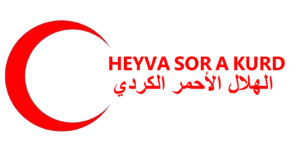More than 66,087 beneficiaries of health and ambulance services within #Kurdish_Red_Crescent’s primary health care point in Washokani camp during 2024, including:
/0 Comments/in Reports, Stories/by nerudaMore than 120,099 beneficiaries of health and ambulance services within the two points of the Kurdish Red Crescent for primary health care in Al-Hol camp during 2024, including:
/0 Comments/in Reports, Stories/by neruda286 babies benefiting from milk distribution in Tabqa city
/0 Comments/in Development, Health/by nerudaMilk distribution continues and 47 beneficiary families in Al-Hasakah city
/0 Comments/in Development, Health/by neruda



Distribution of infant formula to displaced families from Afrin and Shahba
/0 Comments/in Health/by nerudaProviding milk to babies during humanitarian crises is an important issue that requires special attention, as it has a direct impact on the health and development of children. The dire conditions faced by displaced people negatively affect the ability of mothers to provide for their children’s basic nutritional needs. In this regard, the Kurdish Red Crescent began distributing baby milk to displaced families from Al-Shahba and Aleppo within the city of Raqqa and Tabqa, and later to include all other cities in northern and eastern Syria.




Special event for thalassaemia children
/0 Comments/in Development, Health, PSS, Stories/by nerudaEducational and entertainment competitions, puppet theater, gifts and games to enhance confidence, the spirit of participation, cooperation and merge with peers within a special event for thalassemia children implemented by the psychological support team at the Oncology, Burns and Thalassemia Hospital, in coordination and cooperation with “Artist” team.




Continuation of the work of the mobile clinic in Al-Hasakah city
/0 Comments/in Emergency, Health/by nerudaWith the spread of seasonal diseases that increase during the winter, and to follow up on the health status of the displaced people, our medical teams continue through mobile clinics to go to the shelters of the displaced people of Al-Shahba and Afrin in the city of Al-Hasakah, where primary health care services are provided, which include examinations for internal diseases, children and women, in addition to the provision of medicines and health awareness for the displaced.




Distribution of drinking water in the city of Hasakah continues
/0 Comments/in Health, WASH/by nerudas the drinking water crisis continues in the city of Al-Hasakah, and in coordination with the communes, the Kurdish Red Crescent is making ongoing efforts to distribute drinking water to residents. This comes after the WASH team confirmed the safety and quality of the water before distribution using a chlorine level testing device, ensuring the health of those benefiting from these services.




Distributing special needs for displaced children from Al-Shahba
/0 Comments/in Development, Emergency/by nerudaHeadquarter addresse
Qamishlo city /Al-Antarya neighborhood
Email addresses
info.krc@hskurd.org
hr.hskurd@hskurd.org
Covid-19 Hotline
A1- 00963 935 288 541
A2- 00963 949 359 179
A3- 00963 949 356 870
A4- 00963 932 125 933










